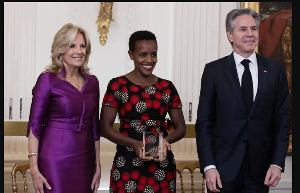UK-based research firm, Fitch Solutions, has projected that Ghana is expected to be among the least affected economies in Sub-Saharan Africa Following the latest US tariff measures announced by President Donald Trump.
In a regional ranking published by the UK-based firm, Ghana is placed 42nd in terms of vulnerability to the new US tariff regime, suggesting a comparatively limited exposure relative to peers.
The country faces an effective reciprocal tariff rate of 10%, with cocoa, textiles, and selected agricultural exports cited as the most impacted sectors.
Fitch’s “Effective US Reciprocal Tariff Rates” index incorporates not only headline duties but also considers exemptions and sector-specific levies.
The index highlights that the Democratic Republic of Congo, Somalia, Sao Tome and Principe, Niger and Eritrea will face the greatest tariff pressures in the Sub-Saharan region.
Equatorial Guinea, by contrast, is forecast to be the least affected among the 48 Sub-Saharan economies assessed.
The broader Sub-Saharan African region, however, may experience renewed macroeconomic pressure, particularly among oil-exporting countries, amid a sharp decline in crude prices.
Brent crude has fallen nearly 15% since April 2, 2025, with analysts warning of further downside risks tied to weakening global demand and OPEC+’s decision to increase supply by restoring previously cut volumes.
“We believe that SSA’s oil-exporting markets will come under significant pressure should global oil prices fail to recover. Among the larger markets, Angola and Nigeria are particularly vulnerable given their structural dependence on oil as a source of both government revenue and foreign exchange,” Fitch noted.
While Ghana appears shielded from the worst effects, analysts warn that targeted sectors such as cocoa and textiles, both of which form a meaningful part of Ghana’s export base, may still face disruptions, especially if key US buyers diversify sourcing to avoid elevated costs.
SP/EB
Business News of Tuesday, 22 April 2025
Source: www.ghanaweb.com













